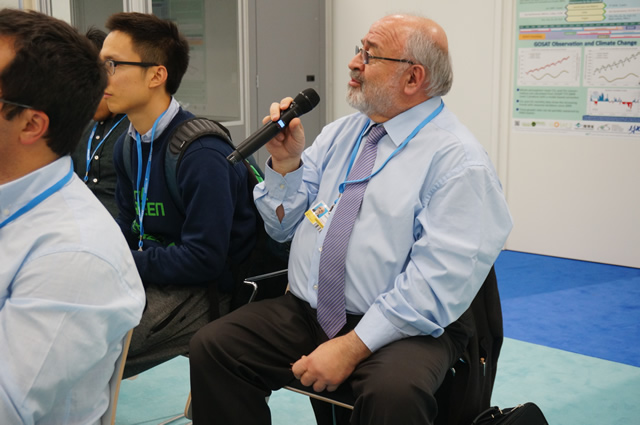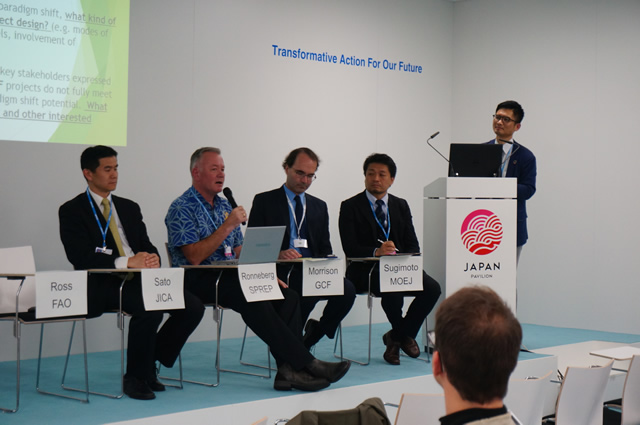
17:00 - 18:30
| Event title |
Seminar on Improving Access to Green Climate Fund |
|---|---|
| Contents | The Ministry of the Environment Japan is promoting mitigation actions in developing country with effective access to Green Climate Fund. In order to introduce next generation project and innovative business model with GCF finance, critical elements for implementation, challenge identified in project development or application process and its applicable solution will be discussed. This side event will undergo with panel discussion with various panelist from GCF secretariat, Accreditation Entities and relevant stakeholders. |
| Keywords | Green Climate Fund |
| Speakers Name and Title |
|
| Organiser / Co-organiser |
|
Opening remarks (5 min):
Keynote presentation (20 min):
Perspectives for enhancement of GCF project/programme development
Panel discussion (50 min)
Moderator
Panelists:
GCF Secretariat
Accredited Entities
National Designated Authorities
GCF Board
Makoto Kato/Emiko Matsuda, Overseas Environmental Cooperation Center, Japan (OECC)


Copyright Ministry of the Environment Government of Japan. All rights reserved